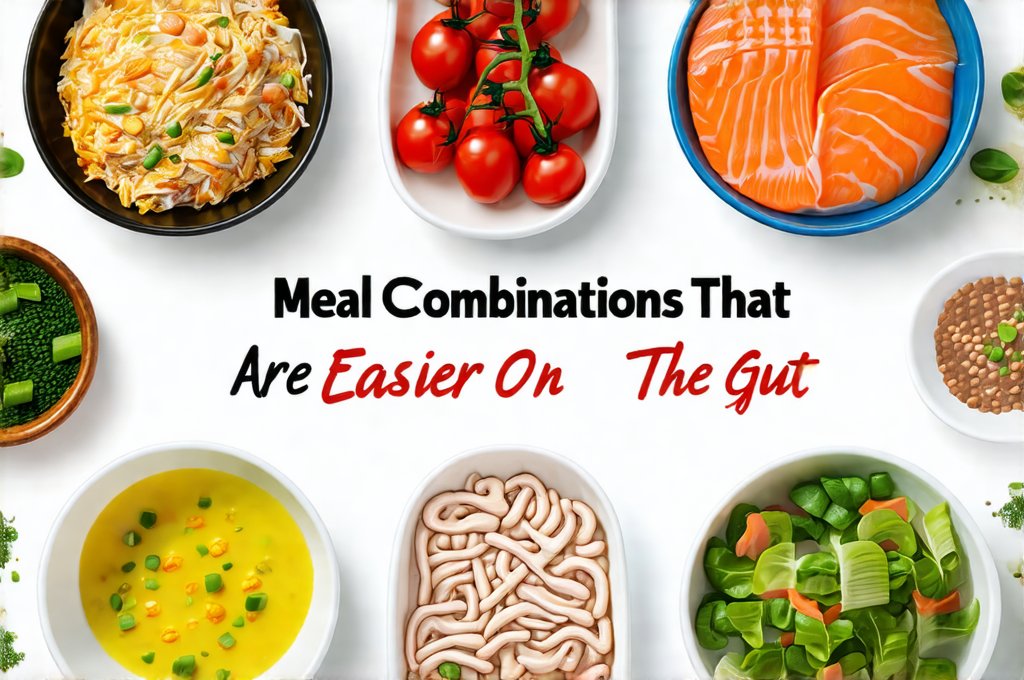Our digestive systems are remarkably complex ecosystems, constantly working to break down food and absorb nutrients. However, many people experience discomfort – bloating, gas, indigestion, even more serious issues – stemming from how we combine foods rather than necessarily what foods we’re eating individually. A seemingly healthy diet can become problematic if the combinations place undue stress on the digestive process. This isn’t about restrictive dieting; it’s about working with your body’s natural processes to optimize digestion and reduce discomfort, leading to greater energy levels and overall wellbeing. Understanding food combining principles allows us to make informed choices that support a happier gut.
The concept of food combining is rooted in the idea that different foods are digested at varying rates and require different enzymatic environments. When we combine foods that digest at drastically different paces—for example, quickly digestible fruits with slow-digesting proteins—it can lead to fermentation in the gut as the slower foods sit while the faster ones move on. This fermentation produces gas and discomfort. It’s important to remember this isn’t a universally accepted scientific principle by mainstream nutrition; it’s more of an observational approach based on how many individuals report improvements when adopting these principles. The goal is to minimize digestive stress, not eliminate food groups or follow rigid rules. Are you eating the right amount for your gut?
Optimizing Food Combinations: Core Principles
The foundation of easier digestion lies in recognizing the primary food categories and their digestive needs. Broadly, we can categorize foods as starches, proteins, fats, fruits and vegetables. Starches – think grains, potatoes, bread – require an alkaline environment to begin breakdown, primarily initiated in the mouth by amylase. Proteins demand a highly acidic environment in the stomach for proper digestion, relying on enzymes like pepsin. Fats are digested later in the small intestine with assistance from bile. Fruits digest very rapidly and don’t need to spend much time in the stomach. Vegetables fall somewhere in between, varying based on their type but generally requiring less intensive digestion than proteins or starches.
Combining large amounts of protein and starch can be challenging because they require opposing digestive environments. The body then has to switch back and forth between acidity for protein breakdown and alkalinity for starch digestion, potentially slowing down the entire process and leading to incomplete digestion. Similarly, pairing fruit with heavier foods like meat or cheese is often discouraged because the rapid transit time of fruits doesn’t allow sufficient stomach processing for these slower-digesting items. This isn’t about avoiding these combinations entirely; it’s about being mindful of portion sizes and frequency. Smaller portions are generally easier to digest, as are less frequent occurrences of challenging combinations. Are plant-based proteins easier on the digestive tract?
Consider the order in which you eat your food too. Starting a meal with a small amount of fruit can actually aid digestion by preparing the digestive system. Following this with vegetables, then protein, and finally starches allows for a more logical flow based on digestive requirements. This sequencing can minimize fermentation and bloating. It’s also vital to chew food thoroughly. Proper chewing initiates the digestive process in the mouth, reducing the burden on later stages of digestion. Are morning smoothies the best for gut health?
The Role of Fiber & Hydration
Fiber is crucial for gut health, but its impact on food combinations should be considered. Soluble fiber slows down digestion, while insoluble fiber speeds it up. Combining large amounts of soluble fiber with rapidly digested foods like fruits can sometimes cause discomfort as the fruit moves through quickly while the fiber lingers. Insoluble fiber generally complements protein and starch better, aiding in efficient elimination. Therefore, incorporating fiber-rich vegetables alongside these food groups is often more beneficial than pairing them with high-fiber fruits.
Staying adequately hydrated is equally important. Water aids in the breakdown of food and helps move it through the digestive tract. Dehydration can exacerbate digestive issues and contribute to constipation, making food combining efforts less effective. Aim for consistent water intake throughout the day, not just during meals. Herbal teas can also contribute to hydration without adding excessive sugar or caffeine.
Addressing Common Problem Combinations
Many people find that dairy products combined with other foods cause digestive distress. This isn’t always about food combining in the traditional sense but often relates to lactose intolerance or sensitivity to milk proteins. If you suspect a dairy issue, experimenting with lactose-free alternatives or reducing your intake can be beneficial. Similarly, combining highly processed foods – those containing excessive sugar, unhealthy fats, and artificial additives – with any other food group is likely to cause problems due to their inherent digestive burden.
Another common combination to consider is caffeine and protein. Caffeine stimulates the digestive system, potentially speeding up protein digestion too quickly, leading to incomplete breakdown. This can be mitigated by consuming caffeine away from meals or choosing lower-caffeine alternatives. Finally, combining spicy foods with large portions of protein can also overwhelm the digestive system, causing heartburn or indigestion. Moderation and mindful portion sizes are key here. Are overripe fruits easier on the gut?
Listening To Your Body: Personalized Approach
Ultimately, there’s no one-size-fits-all answer to food combining. What works for one person may not work for another. The most important aspect is paying attention to your body’s signals. Keep a food diary and note any correlations between specific combinations and digestive symptoms. This self-observation will reveal your individual sensitivities and tolerances.
Experiment with different approaches and gradually incorporate changes into your diet. Don’t try to overhaul your eating habits overnight; small, sustainable adjustments are more likely to yield lasting results. If you have underlying health conditions or persistent digestive issues, consult a healthcare professional before making significant dietary changes. Food combining isn’t about perfection; it’s about finding what works best for you and supporting optimal gut health through mindful food choices. Remember that a balanced diet, adequate hydration, stress management, and regular exercise are all essential components of overall wellbeing, alongside thoughtful food combinations. Are plant milks easier on the digestive system? Also consider if cold breakfasts harder on the gut for you.


















